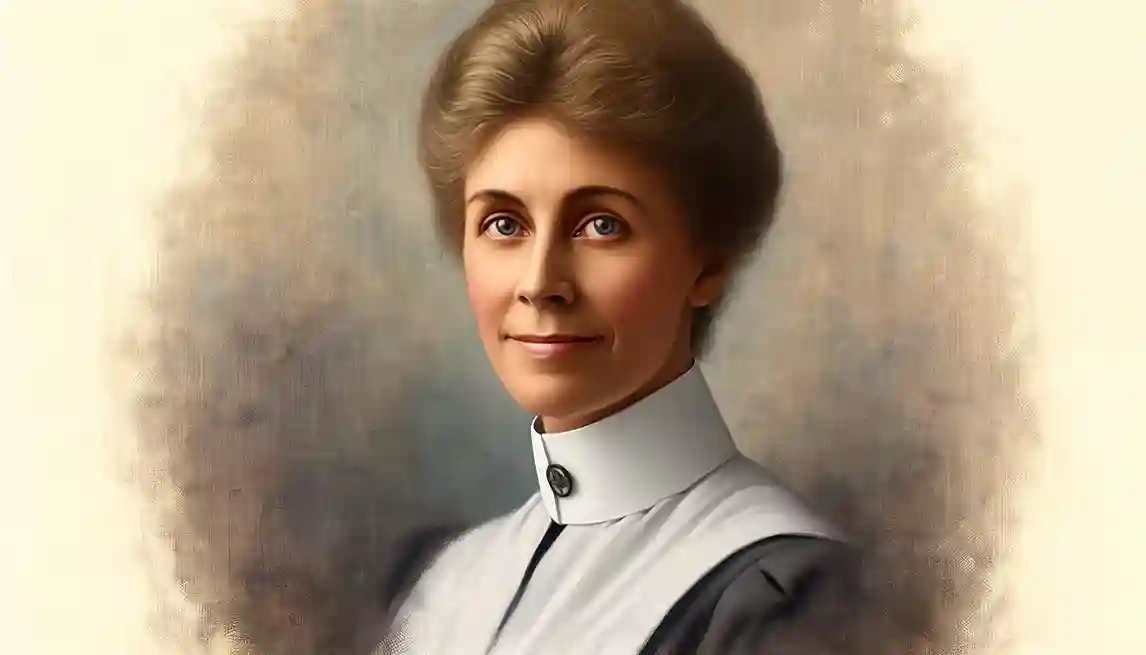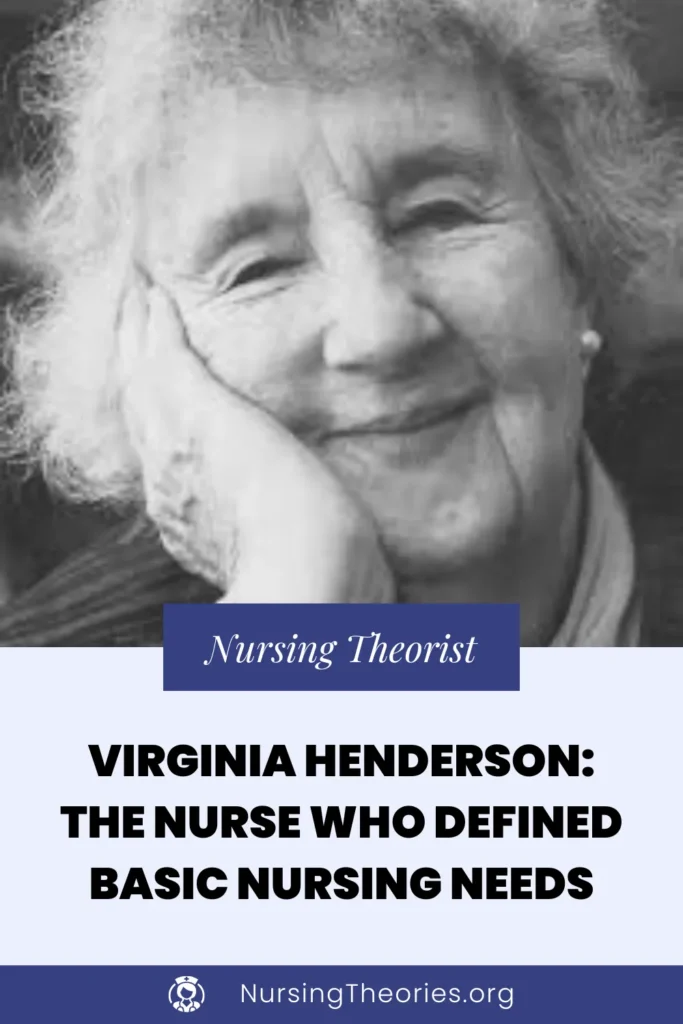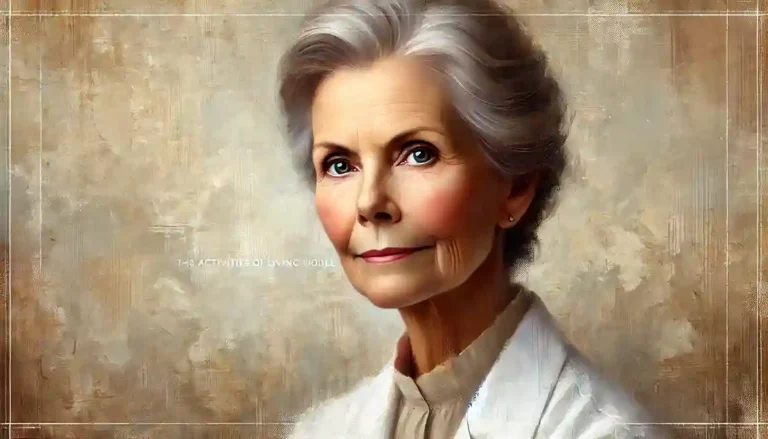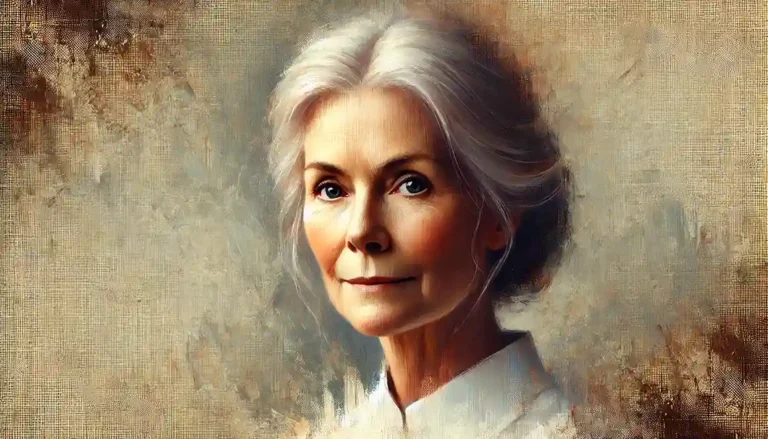Virginia Henderson, often referred to as the “First Lady of Nursing,” profoundly impacted nursing by redefining its scope and purpose.
Her famous definition of nursing, which emphasized assisting individuals to achieve independence, set the stage for modern nursing practice.
With her groundbreaking Need Theory that identified 14 basic human needs, Henderson transformed how nurses approached patient care, making it more holistic and centered on the patient’s physical, emotional, and social well-being.
Her legacy in nursing education, research, and global collaboration continues to shape healthcare systems today.
In this article, we cover Henderson’s life, achievements, philosophy, and lasting impact on modern nursing.

Quick Summary
- Developed the Need Theory, focusing on 14 fundamental needs essential to patient well-being.
- Provided a universally accepted definition of nursing that shifted the focus toward patient independence.
- Revolutionized nursing education with her emphasis on patient-centered care.
- Influenced nursing research and practice worldwide with her holistic care approach.
- Received numerous honors and recognitions, including the prestigious ANA Hall of Fame induction.
Early Life and Background of Virginia Henderson

Birth and Family Background of Virginia Henderson
- Virginia Henderson was born on November 30, 1897, in Kansas City, Missouri, to a family deeply rooted in education and public service. Her father was a teacher and lawyer, and her upbringing instilled in her a lifelong passion for learning and serving others.
- The family later moved to Virginia, where she developed an early understanding of the importance of community health and support.
Education and Early Influences in Henderson’s Life
- Henderson attended the Army School of Nursing during World War I, where she witnessed the importance of organized and compassionate nursing care. Her experience during the war solidified her commitment to improving nursing standards.
- Her exposure to the challenges faced by nurses in providing comprehensive care shaped her desire to redefine the role of nurses within healthcare.
Virginia Henderson’s Philosophy and Vision for Nursing
- Henderson’s philosophy revolved around the concept that nurses play a critical role in helping patients become as independent as possible. Her vision was that nursing is not just about providing temporary relief but about empowering patients to regain control over their health.
- She believed in addressing the patient’s needs holistically, encompassing physical, emotional, social, and spiritual well-being.
- A famous quote encapsulates her philosophy: “Nurses help people sick or well to perform activities contributing to health or recovery that they would do unaided if they had the strength, will, or knowledge.”
Virginia Henderson’s Education and Early Nursing Career
Formal Education and Nursing Training of Virginia Henderson
- Henderson graduated from the Army School of Nursing in 1921. Her experience there provided her with a solid foundation in clinical nursing practice.
- She later pursued further education at Teachers College, Columbia University, earning her bachelor’s degree in 1932 and a master’s degree in nursing education in 1934.
Early Professional Experiences in Henderson’s Career
- After completing her education, Henderson worked as a public health nurse, serving underserved communities and gaining firsthand experience in patient-centered care.
- Her time as a faculty member at Teachers College allowed her to mentor and inspire future nurses while also developing her foundational ideas about patient needs and independence.
Key Achievements and Contributions of Virginia Henderson
Development of Henderson’s Need Theory
- Henderson’s Need Theory identified 14 fundamental needs that must be met for a patient to achieve optimal health and independence. These include basic physiological needs like breathing, eating, and elimination, as well as emotional and social needs like communication and recreation.
- Her theory became a cornerstone of nursing practice, guiding nurses in assessing patients holistically and formulating care plans that promote independence.
Redefining Nursing with Henderson’s Definition
- Henderson provided a clear, widely accepted definition of nursing: “The unique function of the nurse is to assist the individual, sick or well, in the performance of those activities contributing to health or recovery.”
- This definition highlighted the autonomy of nurses and emphasized their role in fostering patient independence rather than merely executing physician orders.
Contributions to Nursing Education and Textbooks
- Henderson authored several editions of Principles and Practice of Nursing, a textbook that became essential for nursing students and educators worldwide.
- Her educational contributions promoted evidence-based practice and patient-centered care, ensuring that nurses were well-equipped to provide holistic and effective care.
Global Influence and Advocacy
- Henderson’s work with the International Council of Nurses allowed her to influence global nursing standards. She played a vital role in promoting the sharing of knowledge and best practices across countries.
- Her advocacy for integrating research into clinical practice helped elevate nursing as a discipline grounded in science and innovation.
Overview of Virginia Henderson’s Need Theory
Henderson’s Need Theory identifies 14 basic needs, which include:
- Breathing normally
- Eating and drinking adequately
- Eliminating body wastes
- Moving and maintaining desirable postures
- Sleeping and resting
- Selecting suitable clothing
- Maintaining body temperature
- Keeping the body clean and well-groomed
- Avoiding dangers in the environment
- Communicating effectively
- Worshiping according to one’s faith
- Working and achieving a sense of accomplishment
- Playing and engaging in recreation
- Learning and discovering for personal growth
Her theory remains foundational in nursing assessments and care planning, ensuring that all aspects of a patient’s well-being are considered.
To explore this theory further, read Virginia Henderson’s Need Theory: Practical Application In Nursing Care
Notable Publications by Virginia Henderson
- Principles and Practice of Nursing
- This comprehensive textbook shaped the way nursing education was structured, promoting a holistic approach to patient care.
- The Nature of Nursing (1966)
- Explored the scientific and humanitarian aspects of nursing, emphasizing that nursing is both an art and a science.
- Basic Principles of Nursing Care
- Published by the International Council of Nurses, this work provided guidelines for nurses practicing across different healthcare systems globally.
Challenges and Criticisms of Henderson’s Work
Challenges in Defining Nursing’s Role
- Henderson faced criticism from traditionalists who believed that nurses should remain subordinate to physicians.
- However, she successfully demonstrated the autonomy of nursing through her writings and advocacy, reshaping perceptions of the profession.
Criticisms of Henderson’s Need Theory
- Some critics argued that the Need Theory was overly focused on basic needs and might not fully address complex or chronic health conditions.
- Despite these critiques, her work remains a guiding framework for comprehensive nursing care.
Timeline of Major Milestones in Virginia Henderson’s Life
- 1897: Born in Kansas City, Missouri
- 1921: Graduated from the Army School of Nursing
- 1932: Earned her bachelor’s degree from Teachers College, Columbia University
- 1934: Completed her master’s degree in nursing education
- 1955: Published Principles and Practice of Nursing
- 1966: Published The Nature of Nursing
- 1985: Inducted into the ANA Hall of Fame
- 1996: Passed away in Connecticut at the age of 98
Legacy and Lasting Impact of Virginia Henderson
Impact on Nursing Education and Practice
- Henderson’s emphasis on fostering patient independence reshaped nursing curricula worldwide, ensuring that nurses are trained to address holistic patient needs.
Global Influence and Recognition
- Her works have been translated into multiple languages, and her contributions are celebrated internationally.
Honors and Memorials
- Inducted into the ANA Hall of Fame in 1985, with memorials honoring her at several nursing institutions globally.
Final Years and Death of Virginia Henderson
- Henderson spent her later years writing, mentoring, and advocating for nursing research.
- She passed away on March 19, 1996, at the age of 98, but her influence continues through her writings, theories, and contributions to nursing education.
Key Lessons from Virginia Henderson for Modern Nursing
- Patient independence: Nurses should prioritize promoting self-care and autonomy in their patients.
- Holistic care: Addressing the physical, psychological, and social aspects of patient care leads to better outcomes.
- Education and mentorship: Continuous learning and teaching are integral to the advancement of nursing practice.
- Global collaboration: Sharing knowledge and best practices strengthens nursing standards worldwide.
- Evidence-based practice: Nursing interventions should be guided by research and empirical evidence.
Conclusion
Virginia Henderson’s Need Theory and her definition of nursing continue to shape nursing education and practice worldwide.
By emphasizing patient-centered care and independence, she redefined the role of nurses and paved the way for holistic and evidence-based nursing.
Her work remains a guiding light for future generations of nurses striving to provide compassionate and effective care.



